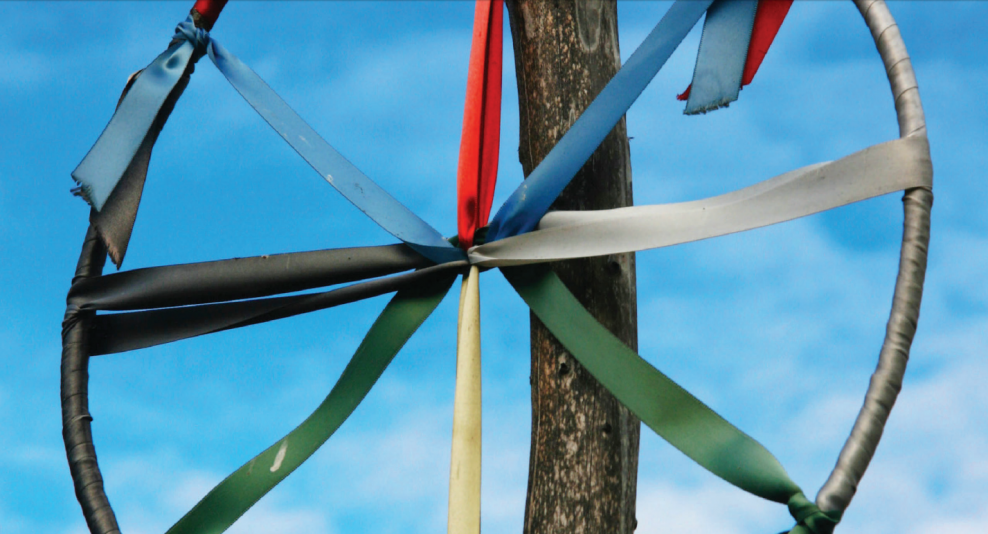Findings from researchers within the Canadian Consortium on Neurodegeneration in Aging (CCNA) demonstrate that rates of dementia have steadily increased over the past 7-10 years in Indigenous communities. What’s more, onset is now occurring – on average – 10 years younger than in non-Indigenous communities throughout Canada, according to Dr. Kristen Jacklin.
This makes HealthCareCAN’s latest report, entitled “Bringing Reconciliation to Healthcare in Canada – Wise Practices for Healthcare Leaders” a particularly timely and relevant resource to guide health leaders in their work to “advance reconciliation and close gaps in health outcomes between Indigenous and non-Indigenous people.”
The report highlights ten recommendations of ‘wise practices,’ including community engagement, recruitment, and retention of Indigenous staff and healthcare providers, as well as anti-racism and cultural safety education.
The CCNA’s Indigenous research team (Team 20) – co-led by Drs. Carrie Bourassa and Kristen Jacklin – have a long history of working towards addressing gaps in dementia care through research projects that focus on building capacity within Indigenous communities in Ontario and Saskatchewan.
This includes Jacklin’s research pre-dating the CCNA, which established that the symptoms of dementia are more widely accepted within Anishinaabe communities. The Anishinaabe tend to view symptoms of dementia (including hallucinations) as visions and gifts. This is not meant to romanticize the experience, Jacklin cautions, but “it emphasizes how different world views lend themselves to different caregiving models and can help nurture the de-stigmatization of dementia.”
Jacklin is pleased with the release of the ‘Wise Practices’ report and its recommendations that closely align with the research projects currently undertaken by Team 20, including the development of culturally relevant health information on dementia and dementia care for the First Nations and Inuit Home and Community Care and collaborating with the CCNA’s team dedicated to technology and dementia through funding from the Networks of Centres of Excellence and AGE WELL NCE.
Last year, Jacklin disseminated the first Indigenous-specific health promotion materials available in Canada and launched the website, Indigenous Cognition & Aging Awareness Research Exchange. The CCNA research team views this accomplishment as one of many steps necessary to fill the gap in health information for healthcare providers, older Indigenous adults, and care partners.
Jacklin urges the importance “… to all Canadians that the recommendations coming out of the Truth and Reconciliation Commission of Canada (TRC) are implemented and that serious and sustained efforts are made to create equitable safe spaces for Indigenous peoples in health care systems. The Wise Practices report provides health leadership with the insights they need to work with Indigenous leaderships and communities to chart a new path forward toward health equity. The recommendations in this report align with research already underway in the Indigenous Dementia Care team in the CCNA. We have implemented a program of research that is guided by local community advisors and respects Indigenous knowledge and approaches to research. Our research is designed to ultimately lead to improved dementia diagnosis and care through culturally safe and trauma informed approaches that can be implemented at multiple level of health services and systems.”
As the Scientific Director of the CIHR Institute of Indigenous Peoples’ Health, Carrie Bourassa has a special focus on pairing emerging Indigenous health researchers with more established researchers and partners at the early stage of their independent academic careers.
In Bourassa’s words, “Traditionally, Indigenous health care was entrusted to a team of community healers including midwives, herbalists, and the all-important shaman, not unlike the multi-disciplinary health care teams of our times. Much of this rich body of knowledge survives to this day; knowledge that is enjoying a revival as we embrace the wisdom and benefits of Two-Eyed Seeing. The successful conveyance of hard-earned knowledge from one generation to the next was and remains a core Indigenous value. I am proud to be able to help continue this rich tradition through CIHR’s support of New Investigators and build the capacity of Indigenous health research.”
As the CCNA enters Phase II, it will continue to leverage its unique and collaborative approach to dementia research. Given that the federal government is in the process of developing a national dementia strategy, the efforts of all of the CCNA’s teams can be more community-minded, coordinated, and responsive to the diverse needs of Canadians by heeding the insights contained in the ‘wise practices’ report.
“Creating a National Dementia Strategy in Canada is a significant advance, and a Research Strategy will figure prominently in this plan. We at CCNA have been working hard to delineate the best short and long-term dementia research goals for Canadian researchers. We hope to share our hard work, enthusiasm, and expertise with those working on the National Strategy in the coming months. Canada has certain areas of dementia research in which we are unique and outstanding, including the Indigenous projects in Team 20, and we can play an increasingly important role on the world stage in dementia research. Adequate funding of such research will have a world-wide impact”. -Dr. Howard Chertkow, Scientific Director CCNA
Effective national collaboration by scientists and clinicians from many disciplines gives the CCNA a cutting edge in research, prevention, treatment, and management of all forms of dementia.

